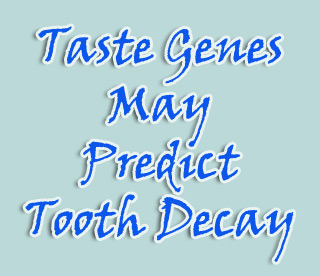
The study encompassed families recruited by the Center for Oral Health Research in Appalachia (COHRA). Biological samples, demographic data and clinical assessment of oral health including caries scores were gathered by the experts. During the study, multiple single nucleotide polymorphism (SNP) assays on every single gene were performed. The acquired data was then scrutinized by transmission disequilibrium test (TDT) analysis (FBAT software).
The information was segregated in three different groups including primary, mixed, and permanent. On completion, Steven Wendell, lead researcher and colleagues associated TAS2R38 and TAS1R2 with caries risk and/or protection. The study seemingly highlights the way patient preferences that are genetically predetermined heighten risk for disease.
The study is published in the Journal of Dental Research and is available online.
